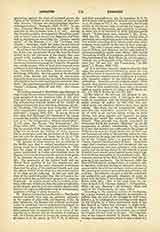

Leclerc du Tremblay, Francois, a Capuchin, better known as PERE JOSEPH, b. in Paris, November 4, 1577; d. at Rueil, December 18, 1638. Owing to the influence of his kinsman the Constable de Montmorency, he appeared at court at the age of eighteen with the title of Baron de Maffliers, and served in the armies of Henry IV against Spain. On February 2, 1599 he became a Capuchin novice. He was provincial of the Capuchins of Touraine in September, 1613, and took part in 1616 in the negotiations of Loudun between Marie de Medicis and the malcontents led by the Prince de Conde. To the future Cardinal de Richelieu he furnished the opportunity of a conference with Conde, the first service rendered by Richelieu to Marie de Medicis and to the State. In this way Pere Joseph appears at the opening of Richelieu’s political career. The role of Pere Joseph has recently been studied anew by Abbe Dedouvres and M. Fagniez. Their researches prove that Pere Joseph remained true to the medieval idea of Christendom. He had visions of a crusade that would combine all Europe, and the purpose of his visit to Rome in 1616 was to discuss with Paul V the schemes of the Duke of Nevers, who was planning to unite against the Turks the Maniots of Mores and the Slav populations of the Balkans, and with this enterprise in view, founded (1617) the Order of the Christian Militia. Pere Joseph even wrote an epic poem on this subject, “La Turciade.” But the conflict between the Habsburgs and the Bourbons, as well as the new prospects of the Mantuan succession open to Charles de Nevers caused the crusade scheme to fail. Pere Joseph then became Richelieu’s confidential political agent, hoping that, with the Bourbons victorious, and peace established in Europe, it would finally be possible to march against the Turks. His scheme was to weaken both the Protestants and the House of Austria, both of whom he considered enemies of the peace of Europe. He wished France to use the Protestants to weaken the House of Austria, and the House of Austria to weaken the Protestants.
Richelieu sent him to Rome in 1625, to negotiate regarding the rival claims of the Grisons and Spain in Valtellina. In 1630 he was sent to the Diet of Ratisbon to give quiet support to the opposition of the German princes to the claims of Emperor Ferdinand, and to strengthen the bonds of alliance between France and the Elector Maximilian of Bavaria head of the Catholic League. On the morrow of the Diet of Ratisbon, Germany was divided between a powerless emperor and two parties, one Catholic, the other Protestant, both equally hostile to the empire. Pere Joseph labored to obtain the neutrality of the Duke of Bavaria and of the Catholic League in view of the invasion of Gustavus Adolphus, protector of the Protestants; he even had hopes of forming an alliance between Maximilian and Gustavus Adolphus. After the death of Gustavus Adolphus war became inevitable between France and the Habsburgs, and it broke out in 1635. Henceforth instead of pressing on Richelieu his own broad political views, Pere Joseph was content to support the makeshift policy imposed by circumstances on the cardinal. The desire for territorial expansion, which at that time governed French policy, was Richelieu’s rather than Pere Joseph‘s. The latter however, eagerly followed the progress of the French troops and, in the cardinal’s name, kept up an active correspondence with the generals and ministers. Tradition represents the cardinal as bending over his dying friend and saying to him: “Pere Joseph, Brisach is ours”. As a matter of fact the taking of Brisach, which occurred on December 17, 1638, could not have been known in Paris on the next morning, the date of the death of Pere Joseph; but the tradition such as it is, symbolizes the close bond which patriotism created between these two men.
While the religious idea of a crusade inspired the secular policy of Pere Joseph, intense sacerdotal and Apostolic zeal characterized him amid all his political preoccupations. At his suggestion d’Orleans-Longueville reformed the Benedictine Order at Fontevrault and founded the congregation of Our Lady of Calvary, for whose nuns he wrote many books of piety. He opposed, even more openly than Richelieu, Richer‘s Gallican doctrines. Pere Joseph also founded Capuchin missions for the conversion of Protestants, in Poitou, Dauphine, the Cevennes, Languedoc, Provence, and later in the East. The sending of Pere Pacifique to Constantinople in 1624, with the title of “Prefect of Eastern Missions” was the beginning of vast spiritual conquests by the Capuchins in the Archipelago, the Greek peninsula, and Asia Minor. From Paris Pere Joseph directed this work, and in 1633 there were ten Eastern missions. It was he also who, in 1633, sent Pere Agathange of Vendome to found a mission in Egypt; this same father in 1637 attempted but in vain to establish a mission in Abyssinia; finally Pere Joseph tried, but unsuccessfully, to establish a mission of French Capuchins in Morocco.
GEORGES GOYAU

